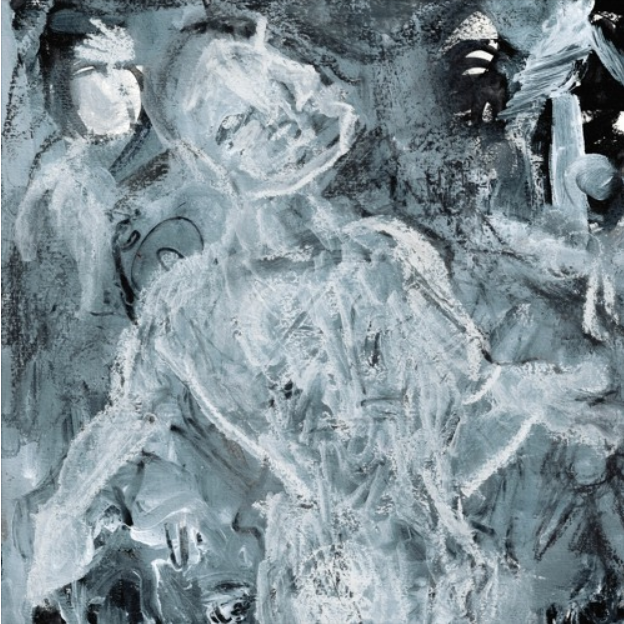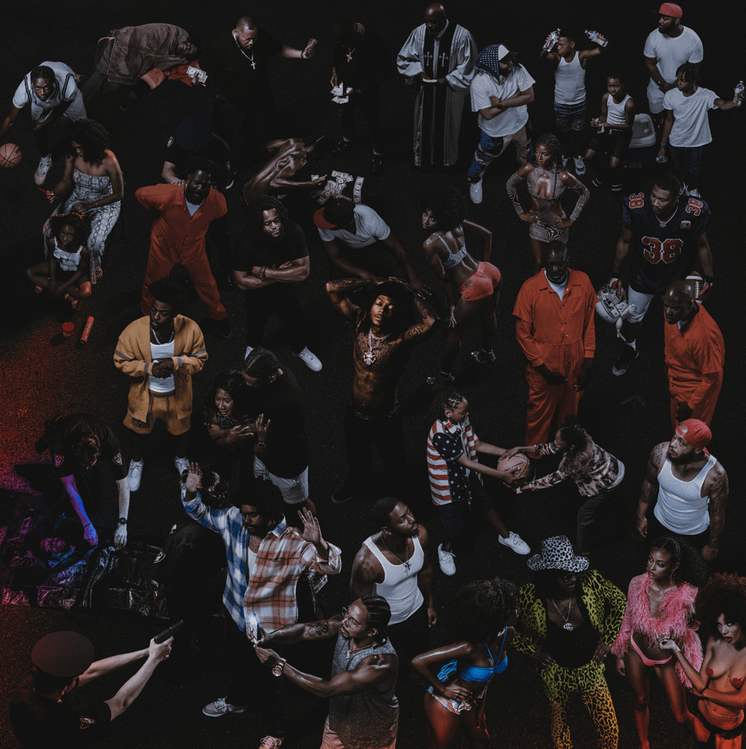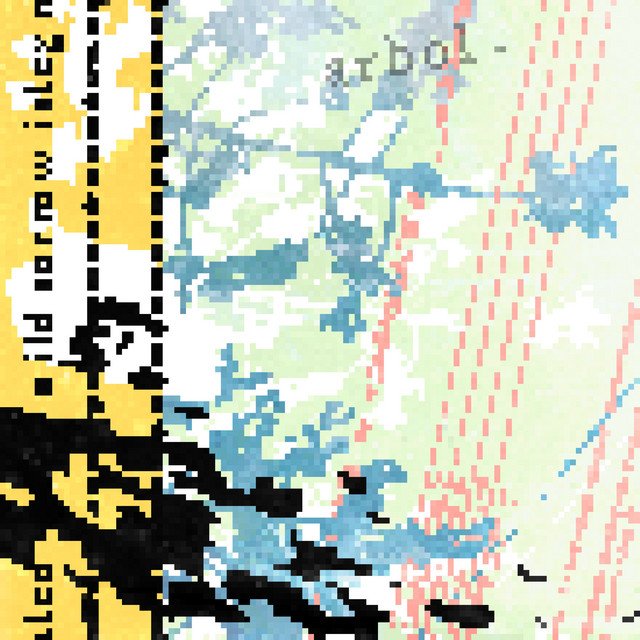The2010s is music journalism at its deepest and most thoughtful. In an era of instant reactions, hot takes and public relations disguised as criticism, we’ve tried to craft a site that moves at its own deliberate pace. We’ve interviewed Grammy winners, collected and dissected the best music of the last decade and garnered tens of thousands of listens on our podcast. Now, we’re asking for your support. Before you check out our favorite songs of 2022, please go to our Patreon page and consider chipping in a few bucks. We’ve got perks from custom made playlists to behind the scenes content and are honored to have your support.
Backwash - Gilla Band
What was your favorite moment of music this year? Not a full song, not even a verse, just a few seconds of music that grabbed your heart and ear? Ok, better question, what was the most harrowing moment of music?
The answer to both is on the back half of “Backwash,” the explosive single by Irish noise-rockers Gilla Band. After building through a slippery bass line and warped Seussian lyrics (“It became a muscle/ A hustle to be a jack russell”) Gilla Band build slasher flick tension until the song can no longer contain itself. A deafening blast of guitar warfare splits the tune wide open, flaying skin and dissolving any sense of structure. Weaponized noise, as addictive as it is worrying. - Nathan Stevens
Born Yesterday - Quadeca
We all know ghosts haunt the living - but what haunts the ghosts?
Quadeca, in his breakthrough record I Didn’t Mean to Haunt You, discovers his choice to move on from the realm of the living has left him “somewhere in between,” a place of tension and instability functioning as a one-way mirror into our existence. On “born yesterday,” he realizes, as his loved ones move on from his passing, that the haunter has become the haunted.
This first single offers a spectral stained-glass window into Benjamin Lasky’s rattled psyche. Swirling, intoxicating layers of grainy, glitchy, knotty texture breathe ethereal afterlife into a raw and anxious meltdown. Despondent, scattered fragments of unpolished stream-of-unconsciousness punctuate an oppressive mix of static and world-worn whirring, the track’s poppier elements pushed to sheer transcendence by the end of an overwhelmingly cathartic crescendo.
This track – hell, this album – is a goddamn triumph, and not just because it breaks new ground or showcases Lasky’s first-rate compositional talents. It reframes, through a brilliantly intimate lens, the underlying struggles of a generation granted uneasy access to radically new forms of expression while ravaged by ceaseless unprecedented international calamity. Lasky is so unapologetically genuine in his portrayal of a young suicide victim who couldn’t possibly have the perfect words to describe what he has yet to process and figure out - and truly, why should anyone expect more of him? It’s so fucking refreshing to hear vulnerability in the voice of a prodigy, to resonate with someone who is this strikingly unpretentious in sharing his nascent yet profound worldview through a stunning aural architecture. This is an exemplar of Gen Z’s artistic potential: something both defiantly different and defiantly his.
In the words of another groundbreaking sonic frontiersman: “Haunt Me. Haunt Me. Do It Again.” - Sam Henderson
Crack Sandwich - JID
This was the one that made The Forever Story click for me. JID’s pseudo concept album, flowing through his childhood in Atlanta and the messy wider mythos of his family, has obvious touchstones, Outkast, Goodie Mob, Dungeon Family, Good Kid m.A.A.d City, but “Crack Sandwich” was where JID planted his own flag. He’s not the Atlanta Kendrick. He’s JID.
Unspooling familial triumphs and traumas in one fell swoop, JID looks back at a tough love upbringing that took as much pride as shame in the school of hardknocks. "When you fall down, stand up, get a bandage/ I ain't got cheeseburger money, make a sandwich/ "Why you bein' bad? See ya dad, get your ass whipped,” JID sighs on the chorus before the song erupts into a hellacious night where JID and his siblings get into a barroom brawl that ends with them in a paddy wagon, wondering if the cops are going to rough them up or worse. “Fighting together made us tighter in spite of how we would argue and scream,” JID admits, half proud of how no one fucks with his family and just as sad how blood spilled is the only way his own blood comes together. - NS
Death of Melody - Preoccupations
Preoccupations have been reborn so many times, there were undoubtedly themes that would arise again through each iteration. In a cycle being completed, Preoccupations have closed the loop on their first ever single, “Unconscious Melody” with “Death of Melody.” “Unconscious Melody” was the sound of jittering writer's block, all text and sound assembling into an unrecognizable drone. “I don’t have any sensation, it isn’t much of a feeling!” howled Matt Flegel. Now on “Death of Melody,” Preoccupations exchange their jangle pop background for a wondrously textured, impossibly deep gothic rock, darkness filling every nook and cranny. And Flegel sings about both his art and himself, looking too far into the abyss and his own creative process. “The best version of myself/ Is nothing to write home about,” he moans as a lightning strike of twin guitars flash over a militaristic drum beat. The thrumming bridge with Fleming singing “Looking for a concept/ Searching for a technique,” applies both to creation and destruction, with all of Arrangements searching for the missing pieces of spirit and mind to survive apocalyptic times. True endings are rare and, even when they happen, sometimes they are soaked in sorrow. At least this one is truly beautiful.
Falta - Tim Bernardes
Tim Bernades’ Brazilian pride shines through on each of his songs, but there are also playful hints of French pop, ye-ye and Chason tiptoeing through his arrangements. The noted sweater-vest enthusiast, who’s been tapped by Fleet Foxes for his compositional chops, delivered a sterling collection of chamber pop on Mil coisas invisíveis and “Falta” served as the emotional through line, both a flex and a humble welcome into his world. Soft, warm bass underpins lightly shuffling piano, subtle strings and Bernades’ own fluttering tenor, stopping and starting on a dime, cutting the song like a veteran conductor, usher in tiny moments of beauty where only a Ghibli-esque piano joins his musings. Portuguese is not required to be completely charmed and carried away by Bernardes. - NS
Holiday World - Mister Goblin
Santa Claus, Indiana is a real place. I did not just make it up. As proof, it even has a theme song! Though I’m unsure how the holly jolliers of the festive town would take the gorgeous and painful “Holiday World.” There’s an ambivalence that runs through “Holiday World” similar to the general confusion at the wider world that informs Mister Goblin’s excellent album Bunny. Here, Goblin and an unnamed partner are stuck, somewhere between trapped and content, in a snow globe of plastered on cheer. And, as Goblin worryingly puts it “You’re making progress” but you’re really just “marking time.” His guitar and drum work, alongside a voice that shifts effortlessly between a sweet coo to a blood-rushing holler, hits a nostalgic nexus of pop-punk, garage rock and the undefinable swoon of indie-rock’s finest ambivalence anthems. If we’re stuck here, at least this is the soundtrack.
I am Opening - Alexia Avina
A good mantra is simple, but powerful. As easy to speak as it is to (even briefly) live in. “I am opening” is a hell of a mantra. On Alexia Avina’s powerful, meditative and thoughtful A Little Older “I am Opening” is the centerpiece, both due to its massive size (8 plus minutes) and the calm fortitude it grants the rest of the album. Over soft, beautiful drones, Avina’s cooing sigh repeats the mantra before a fluttering chorus of synths spark to life and unfolds like the flowers and summer rain Avina sings about. It’s a song, and a saying, you could live in.
June - Destroyer
Dan Bejar has made prettier songs than “June,” and he’s certainly made songs where he sounded less like a pedantic crank, but I’m not sure if he’s ever written anything better, least of all when the spoken outro—it seems like a disservice to call it an outro, because it’s really the heart and soul of the song—gets rolling. He doesn’t usually just talk like this (I initially thought he was parodying the chic crop of talk-sing post-punks from across the pond) and he’s been reading the lyrics off a sheet of paper live, as if to drop all pretense of him being a pop songwriter instead of some wine-drunk Canadian Jeremiah. This is Bejar in full display, wrapping tentacles around the part of the brain that craves cryptic mystery, engrossing complexity and that guilty thrill you can get from listening to someone unapologetically highbrow and unafraid of being seen as pretentious. “June” has some of his best jokes ever, private (“‘Inward Crackle,’ says the fink to himself”) and otherwise (“‘You’ve got to look at it from all angles,’ said the cubist judge from cubist jail”). And it ends with the best evergreen advice I’ve ever heard from a rock singer, delivered as if brusquely turning away from the action to light a cigarette: “Dump him!” - Daniel Bromfield
Leviathan - Everything Everything
“That’s the hook.” It’s hard to imagine what the studio was like when Alex Shaw first pulled out the piercing riff of “Leviathan.” Singer Jonathan Higgs knew within a second that Raw Data Feel’s centerpiece would be built off that spiraling guitar work, his soaring falsetto doubling it into the ether. Placed in the middle of an album filled with paranoia, dancefloor destruction and murder mysteries, “Leviathan” is a moment of respite and reflection. “How am I gonna turn my daggers into leaves?” asked Higgs, a “swords to plowshares” moment for a reality filled with weapons and electronics as the natural world decays.
Mutate - Duval Timothy
There has to be a genre name for the playful, seductive, always thoughtful blend of chamber and ambient filtering out through the finest, most mischievous minds. Elori Saxl’s The Blue of Distance, Fuubutsushi’s self-titled debut, OHYUNG’s massive opus imagine naked! all fit smoothly into this beguiling category. And, now, it might have an anthem. Kendrick Lamar collaborator, mystic hermit and space cadet Duval Timothy granted 2022 one of its finest albums in the rapturous Meeting with a Judas Tree and “Mutate” serves as its anchor point. At over 8 minutes, the song moves like the ebb and flow of the tide under a pier, a mix of subwoofer maneuvering and piano acting as the jutting rhythm section as interjections of soaring guitar, sizzling strings and undefinable blasts of noise all pop in and out of reality. To sit with “Mutate” once is to be pleasantly baffled. On the 5th, 16th or 100th listen, it becomes a puzzle box, slowly locking together its motifs and themes as it reveals itself, ever playful, ever thoughtful and smartly seductive. - NS
Pensacola - Oso Oso
“Pensacola” is, by far, the strangest song Oso Oso have ever released. In it, we find Jade Lilitri simultaneously mulling over a mystery of Pynchonian proportions and hyping himself up to end a relationship (or possibly run away from one, or possibly plead his case to continue one). He uses the number 79 to begin most lines in the song (“Seventy-nine miles out from your place / Hitching a ride, you’ll see that I’ve changed”), which could be random but feels…deliberate. A quick online search reveals 79 to be a number of change; in numerology, 79 is a prompt to follow one’s instincts and pursue one’s journey to accomplish one’s true objective and achieve one’s greatest potential. As auspicious as this is, the music and lyrics seem to point to something else. As the pianos and acoustic guitars bounce along and the bassline lurches into pulpy-film-noir-Deja-Entendu territory, Lilitri arrives at the brilliant, discomfiting hook: “That disguise is over, I can’t explain the hold-up / My body’s in Pensacola, mind’s in this gin and soda.” He returns to this throughout the song and then ends with a wildly uncomfortable lyrical coda that serves as some sort of bellwether: “Some places aren’t quite like you remember / Some faces here they wear like pretenders / Some days this year, man, they feel never-ending.” Amen. - Hunter Moore
plaza - mild sorrow integrated
Argentine producer mild sorrow integrated mostly filled .arbol with Iglooghostian jams, all kaleidoscope colors with a sugar rush as spirit guide ethos. But for the ending banger, msi went a different direction. Halfway between the day-glo hip-hop of DJ Koze and Moby’s Play, “plaza” is springtime as retold by a synthesizer. All gloopy strings, a thudding rhythm section and an inescapable sense of joy. - NS
Pop Song - Perfume Genius
Over the course of six albums and nearly fifteen years, Seattle’s Mike Hadreas has proven his Perfume Genius project to be absolutely essential in the ever-widening American independent music landscape. Ugly Season, Hadreas’ most experimental record and, oddly, one of his catchiest, is proof that he still has a few tricks up his sleeve. Take, for example, “Pop Song,” a twisty little dub diddy that pulls off the feat of being an enigmatic and ephemeral earworm. Mike reaches into his upper register and declares himself a falsetto king, using a ghostly, breathy series of vocal takes to make his point (“Our body is stretched / and holding one breath”). Meanwhile, PG regulars Blake Mills and Alan Wyffels lay a roomy foundation of synths, piano, chimes, and Peter Gabriel-esque percussion that simply builds and builds as the track goes on. “Pop Song,” like all of Ugly Season, is beautiful but never didactic, full but never rotund. In other words, a classic Perfume Genius cut. - HM
The Price of Smokes - The Chats
With an album title like Get Fucked, there’s at least a smidge of snark to everything The Chats do. From the faux-macho car anthem “6LGTR” to the middle manager power trip of “Ticket Inspector,” the Aussie trio’s frustrations are underpinned by cheek. Except for “The Price of Smokes.” There’s not an inch of cheer, forced or otherwise, here. Eamon Sandwith laments inflation crushing his one solace, a pack to smoke through, as the price of everything else around him also spirals upwards. He looks at his bank balance, sneers at the smug gas station attendant and, finally, snaps. “THOSE BASTARDS IN PARLIAMENT OTTA BE HUNG BY THEIR NECKS,” he howls. You’re supposed to fear the rage of a calm man, but there’s nothing as frightening as the righteous anger of a jester. - NS
Sparrow - Big Thief
In which Big Thief finds a Biblical origin story. Adrianne Lenker, her voice twangier and more Emmylou-like with each record, has always written songs about what people have historically perceived as God—the vastness of nature, the interconnectedness of all things, the miracle of life—but when Lenker first mouths the word “Eve” on “Sparrow,” she raises the stakes even higher. She was there in the Garden of Eden, she says, and when the accusatory Adam sings “she speaks to snakes and they guide her,” it’s clear Lenker is rooting her own songwriting in the mythological birth of woman. It’s a grand mythmaking gesture, enhanced as always by Lenker’s decision to sing in heightened rock-talk as opposed to indie rock’s usual blues-averse mumblings: “Mama, the scream of the eagle,” she trembles, that “mama” the difference between a naturalist’s sketch and the endless wound of being aware of your own nakedness. - DB















